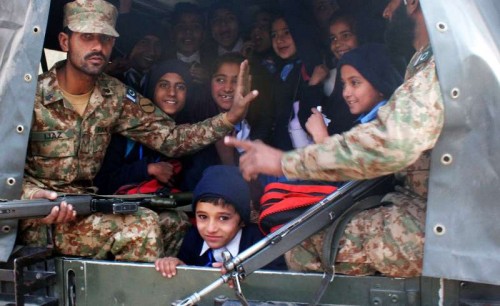
A working group of parliamentary parties in Pakistan suggested measures ranging from formation of military courts to anti-terrorism council as part of the nation’s efforts to combat the scourge of terrorism which has devoured the lives of more than 50,000 people in the country.
The working group came up with 21 recommendations, The News International reported.
The group proposed formation of the anti-terrorism council to be chaired by the prime minister and represented by interior ministry, the army, the Inter-Services Intelligence, Intelligence Bureau and other organisations.
It stressed the need to strengthen the National Counter-Terrorism Authority and formation of a special task force to eliminate terrorism.
The working group recommended that militants included in schedule four of the anti-terror act be arrested and a ban should be imposed on the militant organisations and their leaders.
It also called for a ban on hate speech and literature and underscored the need for reforms in the religious seminaries.
The working group suggested action through monitoring internet activities of terrorists by the Federal Investigation Agency.
It also asked the government to protect religious minorities and cancel all licences for explosive materials.
The working group urged the government to strengthen the provincial government of Balochistan for political reconciliation and take the ongoing Karachi operation to a logical end.
The experts also recommended that the act of praising terrorists through electronic and print media should be considered as a crime.
It is expected that the anti-terrorism plan would materialise within two weeks of its approval.